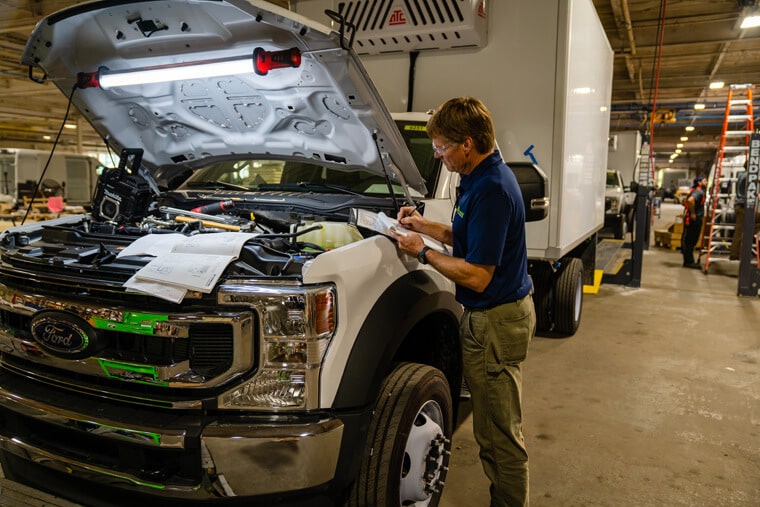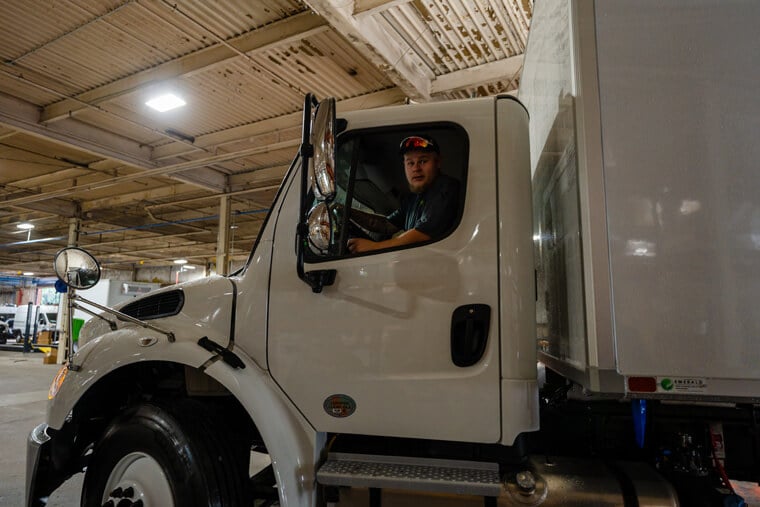
Refrigerated Truck Reserve Capacity
Todd Cawley | February 15th, 2024
When delivering perishable goods, maintaining the right temperature is as crucial as the service itself. At Emerald Transportation Solutions, we understand the importance of reliability and consistency in refrigerated transportation. This is where the concept of ‘reserve capacity’ comes into play, especially for businesses looking for a freezer truck for sale or that are optimizing their fleet of refrigerated trucks.
What is Reserve Capacity?
Reserve capacity refers to the ability of a refrigeration system to maintain the desired temperature under varying conditions beyond immediate cooling needs. This extra “buffer” is pivotal for several reasons.
The Role of Reserve Capacity in Refrigerated Transport
- Unexpected Delays: Traffic, long delivery routes, or additional stops can unexpectedly extend transit time.
- Door Openings: Delivery stops generally mean opening the truck doors, letting warm air in and cold air out, which makes the refrigeration unit have to compensate for the loss.
- Ambient Temperature Fluctuations: On a hot summer day or cold winter night, external temperatures can affect the internal temperature of a truck.
A truck with adequate reserve capacity ensures that your products remain at the optimal temperature throughout their journey, no matter the circumstances.
How Emerald Transportation Solutions Ensures Adequate Reserve Capacity
Customized Refrigerated Delivery Vehicles
At Emerald Transportation Solutions, each refrigerated truck and van in our inventory is designed with reserve capacity in mind. Whether it’s home delivery trucks that make frequent stops or beverage delivery trucks that need to maintain a consistent temperature for quality assurance, our approach is tailored to the specific needs of your business.
Electric and Hybrid Refrigerated Vehicles: The Future of Efficient Delivery
Our electric and hybrid refrigerated vehicles are at the forefront of technology, not only meeting current environmental standards but also providing an impressive reserve capacity. These vehicles are engineered to handle the demands of on-road challenges while keeping your goods at the perfect temperature.
Reserve Capacity: An Investment in Quality
Why You Should Opt for a Vehicle with Higher Reserve Capacity
Investing in a refrigerated truck with higher reserve capacity may have a larger upfront cost, but the benefits outweigh the initial investment. A truck with more reserve capacity is less likely to encounter temperature-related issues, which can lead to spoiled goods, rejected deliveries, and unhappy customers.
Protect Your Goods with the Right Refrigerated Truck
Emerald Transportation Solutions is committed to providing you with the best options in refrigerated transportation. With our comprehensive range of vehicles, customization expertise, and a deep understanding of what it takes to maintain cold-chain integrity, we are your trusted partner in ensuring that your goods reach their destination fresh and safe.
Find Your Ideal Refrigerated Vehicle Today
Are you in the market for a freezer truck for sale that offers the reserve capacity your business needs? Look no further than Emerald Transportation Solutions. Contact us today to discuss your needs, and let us build the perfect refrigerated delivery vehicle for your company.
Don’t compromise on quality – ensure your products are delivered fresh with the right refrigerated truck. Explore our selection and take the first step toward a reliable, efficient delivery experience.
Related Articles
Contact Us
Feel Free To Contact Us If You Have Any Questions
What does under DOT mean?
Questions regarding DOT requirements come up often. 10,000 lbs GVW (gross vehicle weight) and over are commercial vehicles that fall under the Department of Transportation regulatory requirements.
What is the difference between GVW and payload?
GVW or Gross Vehicle Weight is the entire weight of the vehicle including the payload. The payload weight represents the amount of cargo you are hauling.
What is a self-powered unit and a vehicle-powered unit?
A self-powered unit has its own fuel source and will run independent of the truck. This is the heaviest and most expensive option. While vehicle-powered units run off the engine via a compressor mounted on the engine. These are less expensive and lighter in weight but you must run the truck or plug the electric standby into shore power.
What does K-factor mean and why is that important?
K-factor is a term that stands for the overall insulating value of the container (truck body). Quite simply the lower the K-factor the better the truck body will be able to maintain a given temperature and require less energy to do so.
How much lighter is a Poly Van vs a US spec body?
Poly Van bodies are very light. On average we estimate we are 75-150 lbs per foot lighter than a traditional sheet and post foamed in place body. These weight savings translates to less fuel burn and less CO2 emissions, along with added payload, the most important benefit.






